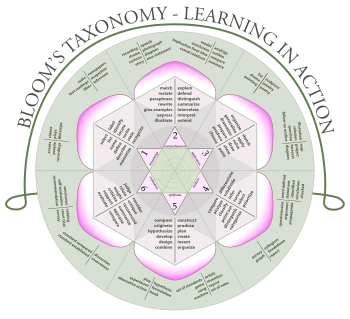Educational objectives can be specified at various levels. These levels include the national level, the institutional level and the instructional level.

In this article we shall look at the various levels.
Educational objectives At the National Level
At this level of educational objectives, we have merely policy statements of what education should achieve for the nation. They are in broad outlines reflecting national interests, values, aspirations and goals. The objectives are general and somewhat vague. At this level, they may be interpreted. It can be in the form of the National Policy on Education. Have you seen your National Policy on Education?
In most cases, you will find the main goals of education in any policy to include:
- To motivate national consciousness and national unity.
- To inculcate the right type of values and attitudes for the survival of the individual and the society.
- To train the mind in the understanding of the world around.
- To acquire the appropriate skills, abilities and competences both mental and physical as equipment for the individual to live in and contribute to the development of the society.
Apart from these goals of education, the National Policy also should specify objectives for early childhood education, primary education, secondary education, adult, technical, teacher, special education, university and other forms of education.
These educational goals can also be specified in the National development plan. Let us look at one of such goals specified in the National development plan. It says that the development of (i) a strong and self-reliant nation (ii) a great and dynamic economy (iii) a just and egalitarian society (iv) a land of bright and full opportunity for all citizens and (v) a free and democratic society. You will recall that we have earlier said that these are called goals or aims. They are broad and too vague to give focused direction to curriculum development.
At the Institutional level
This is the intermediate objectives level. The aims are logically derived and related to both the ones at the national level and the one’s at the instructional levels. What are the objectives of your university? By the time you look at the educational objectives of three or four institutions, you would have noticed that the educational objectives at this institution have been established. They are narrowed to achieve local needs like the kinds of certificate to be awarded by the institutions. These institutional objectives are usually specified by an act or edict of the house of assembly if it is a state government institution, otherwise by an act of the national assembly.
At the Instructional Level
You have seen that objectives specified at both the national and institutional level are all broad goals and aims. These can be realized in its and pieces at the instructional level. Here, educational objectives are stated in the form in which they are to operate in the classroom.
They are therefore referred to as instructional objectives, behavioural objectives or learning outcomes. They are specified based on the intended learning outcomes. These objectives state what teaching is expected to achieve, what the learner is expected to learn from the instruction, how the learner is expected to behave after being subjected to the instruction and what he has to do in order to demonstrate that he has learnt what is expected from the instruction. These instructional objectives are therefore stated in behavioural terms with the use of action verbs to specify the desirable behaviour which the learner will exhibit in order to show that he has learnt.
They are example of the instructional objectives. They are learner- centered not teacher centered. They can easily be assessed on observed. They are specified according to each unity, lesson etc.
En savoir plus sur Centre for Elites
Subscribe to get the latest posts sent to your email.
